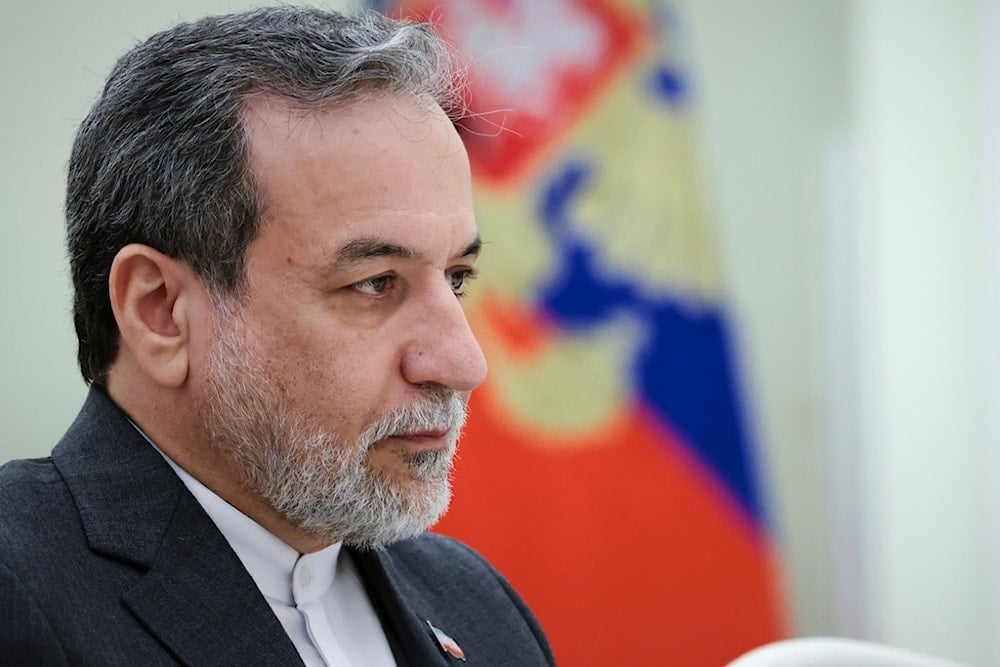E3 has no right to trigger snapback mechanism against Iran: Araghchi
Iranian Foreign Minister Abbas Araghchi rejected E3 threats to trigger UN "snapback" sanctions, warning that such action would violate the 2015 nuclear deal.
-

Iranian Foreign Minister Abbas Araghchi attends the talks with Russian President Vladimir Putin at the Kremlin in Moscow, Russia, Monday, June 23, 2025. (AP)
Iranian Foreign Minister Abbas Araghchi has firmly rejected the latest threats from European capitals to reimpose sanctions under the so-called "snapback" mechanism, declaring that "European countries have no right to reimpose sanctions on his country or trigger the snapback mechanism," and charging that they themselves have violated the 2015 Joint Comprehensive Plan of Action (JCPOA).
Speaking amid renewed Western pressure and in the shadow of recent US and Israeli strikes on Iranian nuclear sites, Araghchi reiterated that Tehran's strategy is to prevent the return of sanctions through deeper cooperation with Russia and China. These partnerships, he stressed, have become increasingly important as Iran strengthens its regional and global alliances to counter unilateral US and European measures.
The foreign minister dismissed Israeli attempts to destabilize the country from within, stating: "Israel thought it could turn the Iranian people against the government, but the opposite happened, as the people stood firmly behind their leadership." He condemned Tel Aviv's claims about the possibility of supplying water to Iranians, exposing what he called its hypocrisy: "It is the same party that deprived Gaza's residents of water."
Araghchi noted that lifting sanctions would allow Iran to address its energy sector challenges efficiently, pointing to the country's proven capacity for self-sufficiency when freed from restrictions.
Europe's position and Iran's counterargument
The remarks come as Britain, France, and Germany signal readiness to activate the snapback mechanism, which would automatically restore UN sanctions without the possibility of a Security Council veto. The E3's warning, issued in a letter to UN Secretary-General António Guterres, comes ahead of the October 18 expiration of UN sanctions and threatens action if Iran does not return to negotiations by the end of August.
Tehran has rejected this outright, arguing that Europe forfeited its standing in the nuclear deal when it failed to uphold its commitments, especially after the United States unilaterally withdrew from the JCPOA in 2018. Since then, the E3 have maintained compliance with US secondary sanctions, offering political statements but no tangible economic relief.
Read more: E3 warns may reimpose sanctions on Iran over stalled nuclear talks
Potential repercussions beyond the nuclear file
Iranian officials have warned that any move to trigger snapback would have consequences far beyond the nuclear dossier. Such a step, they cautioned, could undermine regional stability, with potential implications for maritime security in the Persian Gulf and Strait of Hormuz, critical chokepoints for global energy trade.
Analysts note that the E3's threat comes at a time when European economies remain dependent on stable energy flows and when Western influence in the Global South is already being challenged by the deepening cooperation among BRICS-aligned states, including Iran, Russia, and China.
For Tehran, the message is clear: any attempt to reimpose UN sanctions would not only fail to pressure Iran into concessions but would also further isolate Europe from future negotiations and regional diplomacy.

 3 Min Read
3 Min Read










